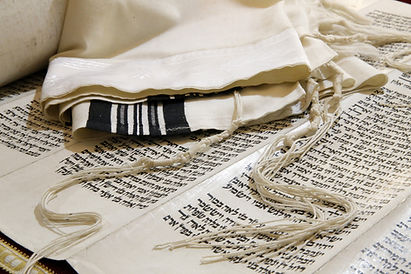

Biblical Significance
The Biblical Significance of Rosh Chodesh
By: Mojmir Kallus, VP for International Affairs
When the coronavirus pandemic forced everyone to move online last year, the ICEJ was quick to start a whole series of Zoom prayer meetings. After a successful 12-hour prayer marathon during Pentecost in June, we felt we could expand the prayer chain up to 24 hours or more and start regular prayer meetings with participation of churches and prayer groups from all around the world. With the Lord’s leading, we chose the beginning of each month according to the Hebrew calendar, or Rosh Chodesh, as the date for these recurring prayer vigils.
We find that in the Bible, Rosh Chodesh is often mentioned together with the main feasts of Passover, Pentecost and the Feast of Tabernacles. They are called moadim, which can be translated as “appointed times”. That is, God makes an appointment with His people, and says He will listen and will accept our prayers. It is a time for drawing near to God.
We know, of course, that God listens at all times and we can and should pray without ceasing. Yet we also can learn from the Biblical concept of appointed times and use the lesson to enhance our spiritual life.
One aspect of the New Moon is the blowing of the trumpet. The Bible says that “it shall be a memorial (zikaron) for you.” In the Hebrew Bible, the word “zikaron” usually means to remember some dark moments from the past, to draw attention to wrong-doing or sin, in order to learn the lesson from history. Examples are Exodus 17:14, Numbers 16:39-40, Numbers 31:54.
Praying at the beginning of each month thus gives us an opportunity to remember and learn from our mistakes. Moreover, the phrase “memorial before the Lord” can also mean that we ask God to remember us, in the sense that Habakkuk prays, “in wrath remember mercy” (Habakkuk 3:2). We remind God of His word, which gives us hope, because He neither slumbers nor sleeps. He will act on His word.
This is the meaning of the commandment in Exodus 39:7 concerning the High Priest’s breastplate. The priest brings the sons of Israel before the Lord as memorial stones; he literally carries them on his shoulders, with all their sins, wrongdoing and imperfection, and cries out, “Lord, remember mercy”. It is an expression of trust in God’s mercy, in His forgiving character.
It is with this attitude that we seek the Lord every month, and the growing number of prayer groups involved shows that this practice has found resonance among believers in many countries. It is important, though, to keep the right attitude. We are not introducing a new tradition or adopting a Jewish ritual. We have in mind the words of Paul who writes in Colossians 2:16-17: So, let no one judge you in food or in drink, or regarding a festival or a new moon or sabbaths, which are a shadow of things to come, but the substance is of Christ.
Paul points to the fact that the Lord wants our hearts, not outward rituals. The substance is important, and that substance is Christ. Every month, let us use the opportunity to repent, cry for mercy, and also celebrate the faithfulness of God and the salvation in His Son.
Interestingly, we find that the Rosh Chodesh celebration will have a place also in the world to come. Isaiah declares: And it shall come to pass that from one New Moon to another, and from one Sabbath to another, all flesh shall come to worship before Me,” says the Lord. (Isaiah 66:23)
The ICEJ has pioneered the celebration of the Feast of Tabernacles as a prophetic sign, understanding that the passage from Zechariah 14, which speaks about the nations coming up to Jerusalem to celebrate the Feast of Tabernacles, will only be fulfilled in the Messianic age. It seems that the time has come to turn attention to Isaiah’s words about Rosh Chodesh and teach the Church about its prophetic significance.